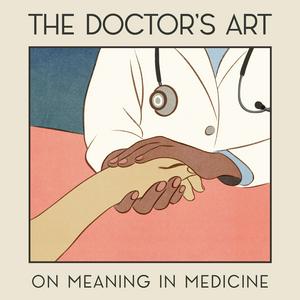George Mark Children's House is a pediatric palliative care center in California that provides respite and hospice for children with serious illnesses and their families. In March 2025, we heard the personal story of the House’s director. In this episode, we have been invited on site to speak with someone whose life has been touched by the House. Our guests are Kaitlyn, a young woman living with epilepsy, her mother Liz, and Kyle, a child life specialist. Kaitlyn has lived with seizures since she was two years old. Over the years, the condition has shaped nearly every aspect of her life, from her time in and out of hospitals to the way she relates to friends, school, and her own identity. In this conversation, she talks about what it feels like to have a seizure, what she's learned from years of living with uncertainty, and how art, humor, and relationships have helped her make sense of it all. Liz, her mother, shares what it was like to first notice something was wrong, how hard it was to find her footing in a world of medical jargon and evolving diagnoses, and what long term caregiving has taught her about patience, advocacy, and perspective. This is not a story about overcoming illness or finding easy silver linings. It's a story about making room for a full life with joy, difficulty, grief, and connection, often all at once. And it's about the role of a place like George Mark, which offers families something rare — not just health care, but space to feel human in the midst of it all.In this episode, you’ll hear about: 3:20 - Kaitlyn’s epilepsy experience, through both her and her mother’s eyes14:00 - How Kaitlyn developed a positive outlook on epilepsy16:30 - How Kaitlyn’s family found George Mark Children’s House23:30 - The role of a child life specialist28:15 - Supporting a child through the physical, emotional and spiritual challenges of their illness29:56 - How epilepsy has shaped Kaitlyn’s views on life’s priorities and challenges, and how it has shaped her mother’s view of parenting40:00 - Kyle’s perspectives on helping children and families through some of life’s toughest experiences43:08 - The qualities that Kaitlyn feels a doctor should have to best connect with their patients Visit our website www.TheDoctorsArt.com where you can find transcripts of all episodes.If you enjoyed this episode, please subscribe, rate, and review our show, available for free on Spotify, Apple Podcasts, or wherever you get your podcasts. If you know of a doctor, patient, or anyone working in health care who would love to explore meaning in medicine with us on the show, feel free to leave a suggestion in the comments or send an email to
[email protected] The Doctor’s Art Podcast 2025
